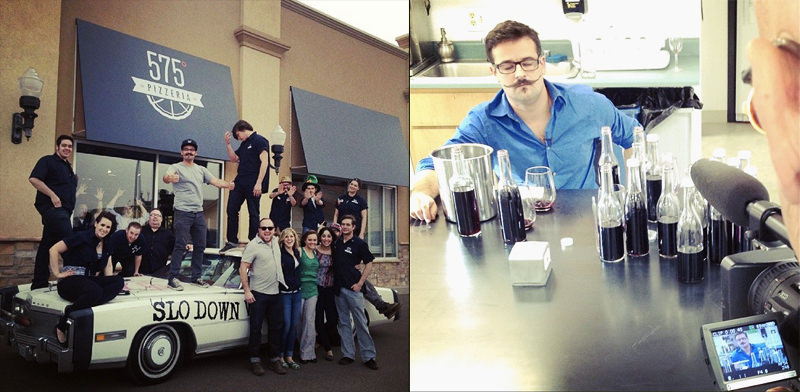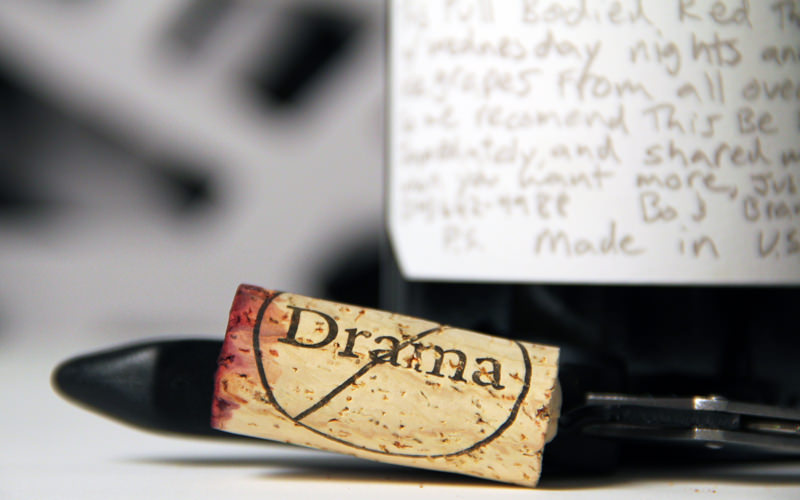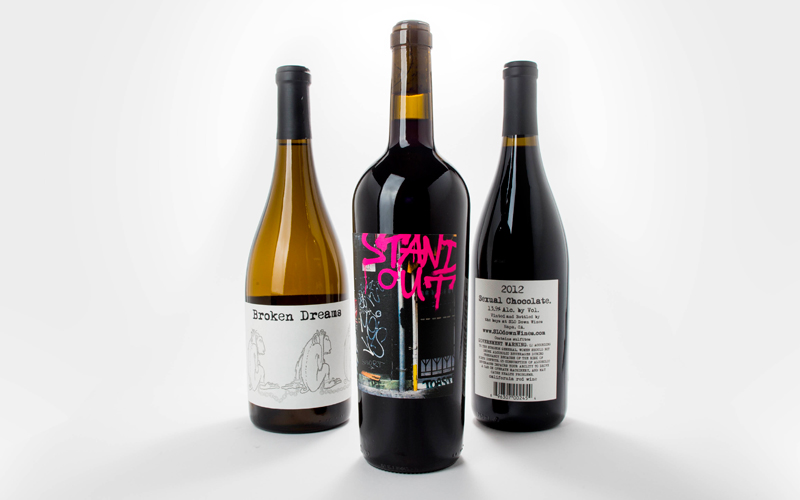Watching a vintage white Cadillac pull up to a local wine shop for the nightly consumer wine tasting, sound system bumping, bearing bottles labeled with a message that basically says screw the French and a line of people waiting to taste is a scene more similar to a rock band on tour than a winemaker traveling around the country sharing his wine with the masses. But with Slo Down wines, that’s exactly the scene you’ll encounter.
Started out of a dorm room at Cal Poly before he was even old enough to legally drink, Brandon Allen began making wine on a whim after a trip to the vineyards with the university’s wine club. “My friends and I were just looking for an excuse to have access to alcohol when we signed up for the trip, but during the experience I realized I not only liked wine, but decided I wanted to make it,” Allen recently told me from his office in San Francisco.
It all started out simply enough, Allen and a few friends realized it might be easier to make booze than make fake IDs, so they began talking to people associated with the industry about how to get started. “Even though we were young, a bunch of people helped us out, and before you knew it, we had made some bottles of wine,” said Allen. With all those bottles, the question became what to do with them, so Allen, along with his co-founder Bo Silliman, slapped a label on them and scribbled their phone number on it, passing their bootlegged hooch around campus. People then called wanting more.
What happened after that was what naturally happens when people dig something you’ve made in your dorm room – though that thing is usually technology – and you live in California – the guys dropped out of college. “We used our student loan money to make 93 cases of wine, and decided to sell it in San Francisco,” Allen says. “I was nervous at first because I hated the whole idea of being a winemaker. To me, those people were dicks, but as we made these cases, we met incredible, down to earth people who really helped us out, and I fell in love with the business.”
But even though he fell in love with wine, Allen’s feelings about the industry being snobby still remained. “Most of the time when people encounter wine, they feel this pressure to talk about it and analyze it,” Allen said, “but that is stuff that only applies to 1% of the population. Most people don’t give a shit. At our tastings I just want to hear people’s stories and get drunk with them.” Allen’s attitude isn’t dissimilar to that of craft beer, and it’s an attitude that’s starting to take hold in wine as well, with brands like Slo Down at the forefront. The icon on the tab of their website is even a hand giving the middle finger, as if to say F-off to the established wine world.

“We’re trying to bring wine down away from the pretension, so it can be accessible to everyone,” Allen said. In that spirit, when Slo Down decided to expand its offerings across the country, instead of traveling from store to store in rental cars to hold tastings, they bought a used Cadillac and planned a cross country jaunt. “I did the math regarding the money I’d be wasting renting cars in every city and realized we could easily buy a cool car, fix it up and make it a symbol for our wine. Then at the end of the trip we could scrap it or give it away, and we’d save money in the process,” says Allen. What grew out of that idea was a trip that resembled a rock tour, and it was completely unique.
Slo Down now makes three different wines with creative and attention grabbing names like “Sexual Chocolate,” and “Broken Dreams” and can be found across the country, in wine shops and established venues such as Whole Foods. I actually encountered them while browsing a wine shop in North Carolina and had to know more upon just seeing the handwritten label. It didn’t hurt that the wine inside was also delicious.
The result of all of their efforts is that Slo Down is now firmly at the front of what is becoming the craft wine movement, a rejection of the pretension surrounding wine and an embrace of making wine accessible – what’s more important is your experience of drinking wine among friends, less important is your analyzation of that wine, which can take away from the experience. The message of “no drama” imprinted on their corks is a fitting symbol of their message.



